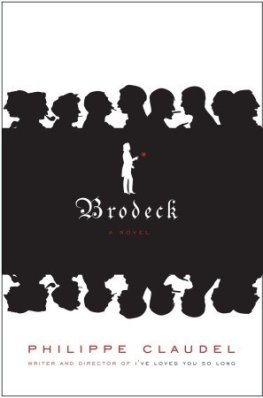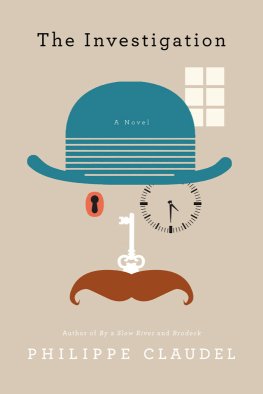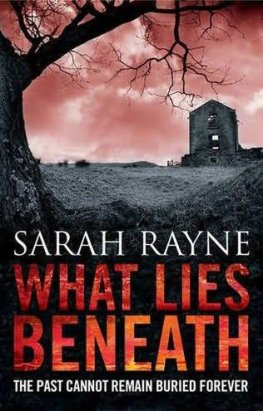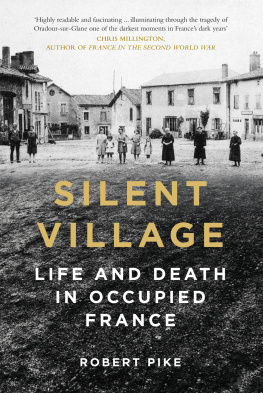or all those
who think theyre nothing
*
or my wife and my daughter,
without whom I wouldnt be much
Im nothing, I know it, but my nothing
comprises a little bit of everything.
Victor Hugo, The Rhine
 m Brodeck and I had nothing to do with it.
m Brodeck and I had nothing to do with it.
I insist on that. I want everyone to know.
I had no part in it, and once I learned what had happened, I would have preferred never to mention it again, I would have liked to bind my memory fast and keep it that way, as subdued and still as a weasel in an iron trap.
But the others forced me. You know how to write, they said. Youve been to the University. I replied that my studies hadnt amounted to much I hadnt even finished my courses and didnt remember much about them. They didnt want to hear it. You know how to write, you know about words and how to use them, you know how they can say things. Thats what we need. We cant do it ourselves. Wed get into a muddle, but you, youll say it right, and people will believe you. Besides, youve got the typewriter.
Its very old, the typewriter. Several of its keys are broken, and I have nothing to repair it with. Its capricious. Its worn out. Sometimes, for no apparent reason, it jams, as though suddenly balking. But I said nothing about any of that, because I had no desire to end up like the Anderer.
Dont ask me his name no one ever knew it. Very quickly, people coined some expressions in dialect and started applying them to him: Vollaug, literally Full Eyes (because his bulged a bit); De Murmelnr, the Whisperer (because he spoke very little, and always in a small voice that sounded like a breath); Mondlich, Moony (because he seemed to be among us but not of us); Gekamdrhin, Came from over There.
To me, however, he was always De Anderer, the Other. Maybe I thought of him that way because not only had he arrived out of nowhere but he was also different, and being different was a condition I was quite familiar with; sometimes, I must admit, I had the feeling that in a way he was me.
As for his real name, none of us ever asked him what it was, except the mayor, perhaps, and then only once, and in any case I dont believe he received an answer. Now well never know. Its too late, and no doubt better that way. The truth can gash you so deeply that you cant live with the wounds any longer, and for most of us, what we want to do is live. As painlessly as possible. Its only human. Im certain youd be like us if youd known the war and what it did here, and above all what followed the war, what those weeks and months were like, particularly the last of them, the period when that fellow arrived in our village and settled here, just like that, from one day to the next. Why our village? There are dozens and dozens of villages in the foothills of the mountains, lying amid forests like eggs in nests, and many of those villages are a lot like this one. Why did he choose precisely our village, so far from everything, so utterly remote?
When they informed me that they wanted me to write the Report, we were all at Schlosss inn. It was about three months ago, right after right after I dont know what to call it. The event? The drama? The incident? Or maybe the Ereignis. Ereignis is a curious word, full of mists and ghosts; it means, more or less, the thing that happened. Maybe the best way to say that is with a word taken from the local dialect, which is a language without being one, and which is perfectly wedded to the skin, the breath, and the souls of those who live here. Ereignis, a word to describe the indescribable. Yes, I shall call it the Ereignis.
So the Ereignis had just taken place. With the exception of two or three ancient villagers who had stayed home, close to their stoves, as well as Father Peiper, who was no doubt sleeping off his liquor somewhere in his little church, all the men were at the inn, which is like a great cave, rather dark, and suffused with tobacco fumes and smoke from the hearth; and the men, all of them, were dazed and stunned by what had just happened, yet at the same time how shall I say it? relieved, because clearly, one way or the other, it had been necessary to resolve the situation. You see, they could bear it no longer.
Each was folded into his own silence, so to speak, even though there were nearly forty of them, pressed together like withies in a bundle, choking, inhaling the others odors: their breath, their feet, the acrid reek of their sweat and their damp clothes, old wool and broadcloth impregnated with dust, with the forest, with manure, with straw, with wine and beer, especially wine. Not that everybody was sloshed; no, it would be too easy to use drunkenness as an excuse. Saying that would just be a way of diluting the horror. Too simple. Much too simple. Im going to try not to simplify whats very difficult and complex. Im going to try. I dont promise that Ill succeed.
Please understand me. I repeat: I could have remained silent, but they asked me to tell the story, and when they made the request, most of them had their fists clenched or their hands in their pockets, where I imagined them grasping the handles of their knives, the very knives which had just
I mustnt go too fast, but its hard not to because now I keep sensing things behind my back movements, and noises, and staring eyes. For some days, Ive been wondering if Im not changing, bit by bit, into quarry, into a tracked animal with the whole hunt, led by a pack of snuffling dogs, at its heels. I feel watched, tailed, surveilled, as if from now on there will always be someone just over my shoulder, alert to my smallest gestures and reading my thoughts.
I will come back to what was done with the knives. I will perforce come back to that. But what I wanted to say was that to refuse a request made under such conditions, in that special mood when everyones head is still full of savagery and bloody images, is impossible and even quite dangerous. And so, however reluctantly, I agreed. I simply found myself in the inn at the wrong time, that is, some few minutes after the Ereignis, in one of those moments of bewilderment characterized by vacillation and indecision, when people will seize upon the first person who comes through the door, either to make a savior of him or to cut him to pieces.
Schlosss inn is the biggest of the six taverns in our village, which also boasts a post office, a notions shop, a hardware store, a butcher shop, a grocery store, a tripe-and-offal shop, a school, and a branch of a legal office based in S. Over this last place, which is as filthy as a stable, preside the senile lorgnettes of Siegfried Knopf, whos called an attorney even though hes only a clerk. In addition, theres Jenkinss little office; he served as our policeman, but he died in the war. I remember when Jenkins left. He was the first to go. Ordinarily he never smiled, but that day he shook everyones hand, laughing as though he were on his way to his own wedding. Nobody recognized him. When he turned the corner at Mberscheins sawmill, he waved broadly and threw his helmet into the air in a joyful farewell. He was never seen again. He has never been replaced. The shutters in his office are closed, its threshold now covered by a small growth of moss. The door is locked. I dont know who has the key, and Ive never tried to find out. Ive learned not to ask too many questions. Ive also learned to take on the color of the walls and the color of the dust in the street. Its not very difficult. I look like nothing at all.
Widow Bernhart pulls down the metal shutter of her grocery store at sunset; after that, the only place where you can buy a few provisions is Schlosss inn. Its also the most popular of the taverns. It has two public rooms. The one at the front is the larger of the two; its walls are blackened wood, its floor is covered with sawdust, and you practically fall into it when you enter because you have to go down two steep steps carved into the very sandstone and hollowed out in the middle by the soles of the thousands of drinkers who have trod there. And then theres the smaller room in the back, which Ive never seen. Its separated from the first room by an elegant larch-wood door with an engraved date: 1812. The little room is reserved for a small group of men who meet there once a week, every Tuesday evening; they drink and smoke either tobacco from their fields in porcelain pipes with carved stems or bad cigars from who knows where. Theyve even given themselves a name:










 m Brodeck and I had nothing to do with it.
m Brodeck and I had nothing to do with it.